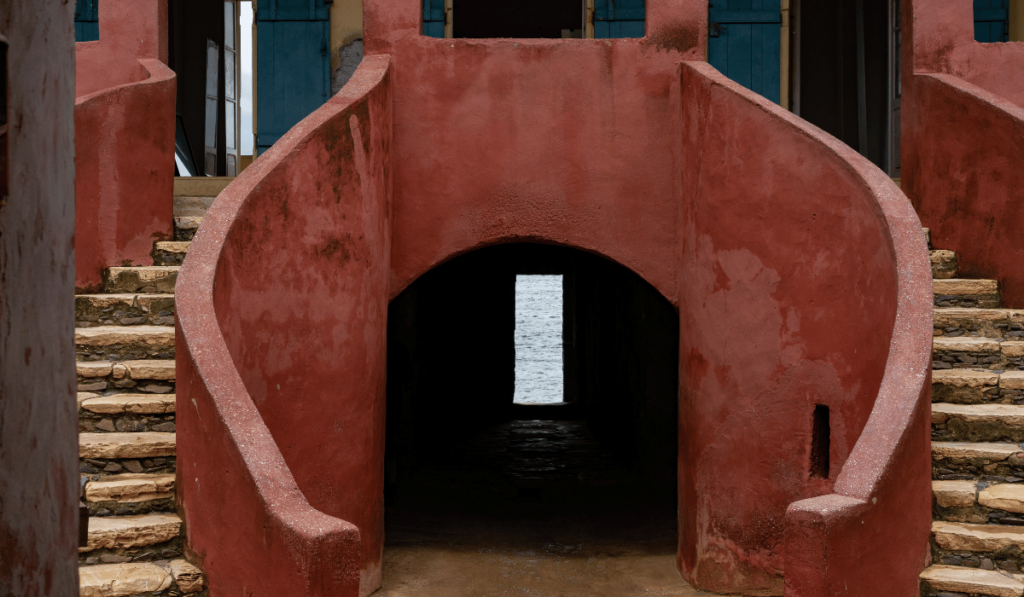Why Senegal is a country that tourists must visit
It's a country with an epic vibe, and it has something to offer everyone. From vibrant culture to pristine beaches.
The world is starting to take notice of Senegal as a destination worthy of attention, especially after Chanel held its annual Metiers d'Art fashion show in Dakar. Read on to discover 5 epic reasons why Senegal is a country tourists must visit!
1. UNESCO World Heritage Sites
Despite the current state of the world, it's still important to take the time to explore destinations as beautiful and healthy as Senegal. The country's UNESCO World Heritage sites will leave tourists speechless with their impressive beauty and rich history.
The capital of Dakar embodies the dynamic spirit of West Africa, offering an eclectic mix of markets like Marche Kermel, where stalls are filled with local products and crafts, and museums like Ifan Museum of African Arts that offer a deeper dive into the country's rich culture. It's also home to iconic monuments, such as the African Renaissance Monument.
The island of Goree is an unmissable destination for anyone seeking a better understanding of the history of slavery and Senegal. It is the country's first UNESCO World Heritage Site and was a major center for the transatlantic slave trade centuries ago. The Maison des Esclaves (Slave House) is a sobering reminder of the tragedy of slavery, and the haunting doorway with no return offers a visceral link to the countless lives lost.

Another must-see is Touba, the holy city of the Mouride Brotherhood, a peaceful sect of Islamic mysticism that accounts for over 40% of the country's population. The area is filled with pristine lands, as well as historic buildings, such as the Great Mosque of Touba. Senegal's impressive UNESCO World Heritage sites will leave any visitor wanting more. The best way to experience them is to explore the different regions of this beautiful nation, so take the time to find your adventure! When visiting, remember to stay safe and respect local customs and traditions. Be sure to dress appropriately for the climate and always use a reputable currency exchange when exchanging money. It's also important to follow etiquette when visiting mosques and avoid using headphones in public places.
Senegal is a treasure trove of natural wonders for visitors to explore. The awe-inspiring wonders range from beautiful landscapes to unique wildlife and cuisine.
Although the country is not a true desert, it offers many unspoilt areas that will appeal to nature lovers and ecotourists alike. In the south-east, the Niokolo-Koba National Park is a protected area where tourists can admire elephants and a lagoon. Another astonishing natural wonder is Lac Rose (Pink Lake) in Dakar. The lake gets its color from a special type of algae called Dunaliella Salina. The lake's pink color captivates tourists who take a dip or float in its waters.
The arid Lompoul desert in the south of the country is also well worth exploring. A visit to the desert can be as relaxing or adventurous as desired, and it's possible to sleep in a tent under a starry sky or take a two-hour safari drive with two lions in the nearby Dakar Lion Reserve.
If you're looking for a more leisurely experience, Senegal is also dotted with serene beaches and riverside picnics. These are perfect places to relax and lounge.
In addition to Senegal's incredible natural beauty, its people are friendly and welcoming to all who visit their homeland. They follow a culture of hospitality that is rooted in their community and embraced by all, regardless of creed, ethnic origin or religion. The locals call this culture Teranga in Wolof, their main language.
In addition to their warm hospitality, the locals are also committed to protecting their natural wonders. They have made great strides in supporting responsible and sustainable tourism by developing community initiatives that enable tourists to visit local villages, engage with communities and support them economically.
3- Culture
Senegal's rich culture is increasingly attracting global attention. Its vibrant art scene is taking a backseat to mainstream fashion - Chanel held its Metiers d'Art event in Dakar last year, making it the first European luxury brand to organize an event of this scale in sub-Saharan Africa. It showcased the country's singular culture of craftsmanship, style and music.
Senegalese people are renowned for their hospitality, a concept known as "Teranga" in Wolof (the local language). Teranga means that you are welcomed and cared for regardless of differences, including creed, race and religion. This deep-rooted sense of hospitality is evident throughout the country.
Unlike some African countries which feel overwhelmed by tourists, Senegal feels like a preserved border. Outside of the all-inclusive resorts and the capital, it's rare to see another Western tourist. Even in Dakar, a city that feels like a gateway and a party, you can experience an authentic life on the streets. Here, a tailor can be found on every street corner, naming ceremonies take place on the street, and drumming and dancing celebrate a legacy of professional storytellers, the Griots.
Senegalese religious beliefs are influenced by the traditions of their ancestors, with Islam or Christianity forming the basis of many practices. As well as praying, the majority of Senegalese practice talismans and sacrifice chickens to ward off evil spirits and disease.
Sand painting is another popular form of Senegalese expression. The technique is based on the use of local raw materials such as dune sand, volcano sand or garden soil. The resulting works are colorful and striking. You can also buy a handmade talisman as a souvenir to take home.
4- Cook
Senegal is a gastronomic delight, with dishes that incorporate local ingredients and tantalizing spices. The cuisine also has some French influence from the nation's colonial past. Thieboudienne is the country's national dish, a tasty one-pot meal that includes fish, garlic, tomato paste and vegetables, all served over rice. Yassa Poulet, a classic chicken dish marinated with onions, mustard, lemon and spices, is grilled and served over rice.
Millet and couscous are staple foods in Senegal, along with peanuts, sweet potatoes, white beans, black-eyed peas and various vegetables. The country is predominantly Muslim, so pork and beef are not used in the diet. Juices are popular beverages, with Bissap (hibiscus flower juice) and Bouye (the fruit of the Baobab tree) being particularly noteworthy.
Pastries and cakes such as Mafe Kou and Gateau de Niebe are tasty options for dessert. Bissap, a popular drink, is made from hibiscus flowers and can be found in every restaurant or supermarket.
The Senegalese are known for their hospitality, and this spirit is woven into the fabric of their culture. They practice a philosophy called Teranga, which means "the well-being of others" in Wolof, the main language spoken here. This sense of generosity extends to tourists, who are greeted with choruses of Saleem Alekum ("Peace be upon you") as they walk through the streets. Senegal is a very safe place for travelers, but it's always wise to heed warnings about petty crime in public and use common sense when traveling. The capital of Dakar is a vibrant cultural hub with bustling markets and iconic monuments such as the African Renaissance Monument and Goree Island. Those with a little more time can head north to Saint-Louis, the former colonial capital, where pastel decadence still reigns supreme.
5. beaches
Wide stretches of golden sand are the hallmark of Senegal's coastal landscape, with popular beaches at Saly, La Somone and Casamance. The coastline offers a heavenly escape, where visitors can lounge and relax.
However, tourists can also get involved and explore the local culture and community. One can take a tour of Goree Island to learn more about the slave trade, or venture further inland for a unique experience. You can explore the wetlands and lagoons of the Saloum Delta National Park, or even rush in a canoe through the maze of dune lakes and swamps in the Lompoul Desert.
Alternatively, a visit to the village of Guet Ndar offers an insight into traditional Senegalese life. Here, tourists can experience embroidered clothes and local music. Tourists can also taste Fusion Street Food and Energetic Music of Dakar's Old Medina District.
The best time to travel to Senegal is between November and May, which marks the dry season in the country. During this time, tourists can enjoy the country's beaches and outdoor attractions, as it offers pleasant weather and little rainfall.
It is important that tourists stay safe during their trip to Senegal. To this end, they should avoid public demonstrations and other disturbances in urban areas. In addition, they should always keep abreast of local news of any potential incidents or threats in the area. In addition, they should carry adequate cash to cover their expenses in the event of an emergency. Tourists should also dress modestly when visiting religious sites or traditional communities, and respect the customs of the local population. Finally, tourists should use reputable transport services and measured cabs to avoid being overcharged by unscrupulous drivers.
